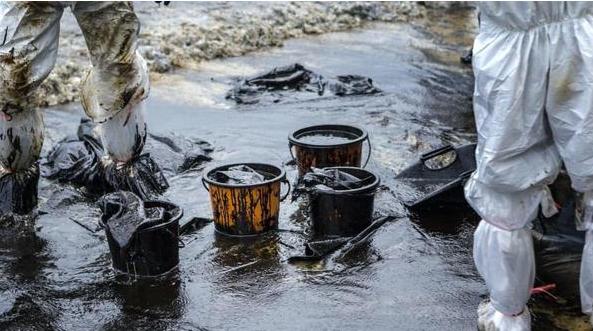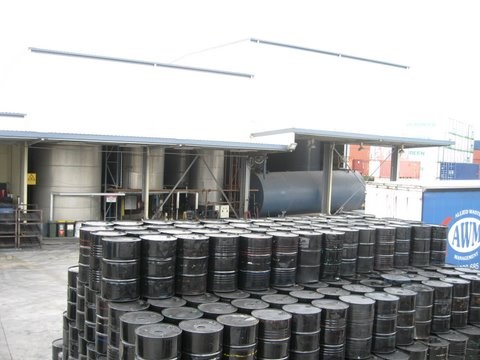Fast and Timely Waste Oil Collection for Commercial Applications
Fast and Timely Waste Oil Collection for Commercial Applications
Blog Article
Trustworthy Oil Collection Solutions Designed for Lasting Used Oil Administration
The administration of utilized oil is a crucial facet of ecological sustainability, and the duty of credible oil collection services can not be overemphasized. These services not just guarantee conformity with regulations but also cultivate a society of responsibility among companies. By employing sophisticated modern technologies and qualified professionals, they enhance the collection procedure while minimizing environmental impact. The selection of a suitable partner for these services offers its own collection of challenges and factors to consider. Recognizing these characteristics is important for organizations intending to enhance their sustainability efforts and maintain a favorable public image. What variables should be focused on in this choice process?
Importance of Used Oil Management
The monitoring of utilized oil is critical for both environmental management and public wellness. Improper disposal of made use of oil can bring about substantial contamination of dirt and water resources, negatively influencing communities and human wellness. Utilized oil consists of hazardous substances, consisting of heavy steels and polycyclic fragrant hydrocarbons, which can leach right into the ground and waterways, positioning dangers to wildlife and drinking water materials.
Additionally, the ecological impact of made use of oil extends to its payment to air contamination when burned incorrectly. Effective monitoring strategies alleviate these risks, ensuring that made use of oil is collected, refined, and reused in a manner that is safe and lasting. Reusing made use of oil not just preserves sources but likewise reduces the demand for new oil extraction, promoting a round economic situation.
Furthermore, correct management of utilized oil supports regulative compliance, as several territories enforce stringent policies on its disposal. Organizations that focus on responsible used oil monitoring not only safeguard the environment however likewise improve their reputation and functional sustainability. In summary, the relevance of used oil monitoring can not be overstated; it is a crucial element of ecological stewardship and public health safeguarding.

Key Features of Trustworthy Provider
5 crucial functions define credible oil collection services, making certain liable management and environmental protection. Initially, regulative compliance is critical; respectable services follow regional, state, and federal regulations controling utilized oil administration. This compliance not only alleviates lawful dangers however additionally cultivates public trust.
2nd, openness in operations is important. oil recovery services. Trustworthy providers supply clear interaction regarding their processes, pricing, and the ecological influence of their solutions. This visibility helps clients make educated choices regarding their oil disposal demands
Third, using innovative innovation boosts efficiency and safety and security. Trusted solutions utilize modern equipment for collection, storage, and transportation, lessening the risk of spills and accidents.
4th, trained workers play a crucial role in keeping solution quality. Trustworthy oil collection business utilize certified personnel who are knowledgeable regarding best practices in oil management and environmental protection.
Finally, a dedication to sustainability is a defining function. oil recovery services. Leading solutions proactively engage in reusing and recycling collected oil, adding to a circular economic climate and lowering ecological footprint. Together, these attributes establish a structure of trust and responsibility in oil collection services, promoting a cleaner, lasting future
Benefits of Lasting Oil Collection
Sustainable oil collection offers various advantages that extend past immediate waste monitoring. By applying accountable collection practices, services can significantly minimize ecological influence, alleviating the threats linked with oil spills and contamination. This aggressive technique not only safeguards communities yet also promotes compliance with environmental regulations, consequently preventing potential fines and legal repercussions.
Moreover, sustainable oil collection adds to source conservation by assisting in the recycling and repurposing of used oils. Redeemed oil can be processed right into high-grade lubricants or converted right into biodiesel, therefore sustaining the circular economic climate. This change toward source recovery reduces dependence on virgin oil, additionally improving sustainability campaigns.
Along with ecological advantages, companies participating in sustainable oil collection can enhance their business social responsibility (CSR) profile. By demonstrating a commitment to go to this website sustainable techniques, business can boost their reputation amongst customers and stakeholders, promoting depend on and commitment.
Choosing the Right Oil Collection Companion
Discovering the suitable oil collection companion is crucial for organizations aiming to boost their environmental stewardship and functional effectiveness. When choosing a partner, it is necessary to examine their experience in taking care of used oil and their commitment to sustainable methods. Search for a company with a proven track document in conformity with regional and government guidelines, as this guarantees that your waste is taken care of sensibly.
Additionally, take into consideration the innovations and processes employed by the oil collection solution. A partner that utilizes advanced collection techniques and recycling strategies can substantially decrease your ecological footprint. Analyze their logistical capabilities too; a reputable companion needs to supply flexible scheduling and reliable courses to minimize disruption to your operations.
Customer support is an additional essential aspect. Choose a companion who focuses on communication and transparency, ensuring that you are informed throughout the collection process. Seek out endorsements or case studies from various other customers to gauge the copyright's reliability and efficiency.
Future Patterns in Oil Management

In addition, synthetic knowledge is playing an essential function in anticipating upkeep, helping companies anticipate equipment failings and minimize oil leakage. This positive method not just conserves resources but additionally improves operational effectiveness.
Sustainability is further highlighted through the rise in partnerships with certified reusing facilities, ensuring that utilized oil is refined in an eco-friendly manner. oil recovery services. The shift towards circular economy principles is likewise acquiring traction, where waste is deemed a resource, leading to cutting-edge methods for re-refining utilized oil into high-grade lubricating substances
Additionally, regulative frameworks are coming to be extra rigorous, engaging companies to adopt certified methods in oil administration. As these patterns unfold, the emphasis will certainly stay on producing a lasting future, where liable oil administration lines up with waste oil collection broader ecological goals.
Final Thought

Report this page